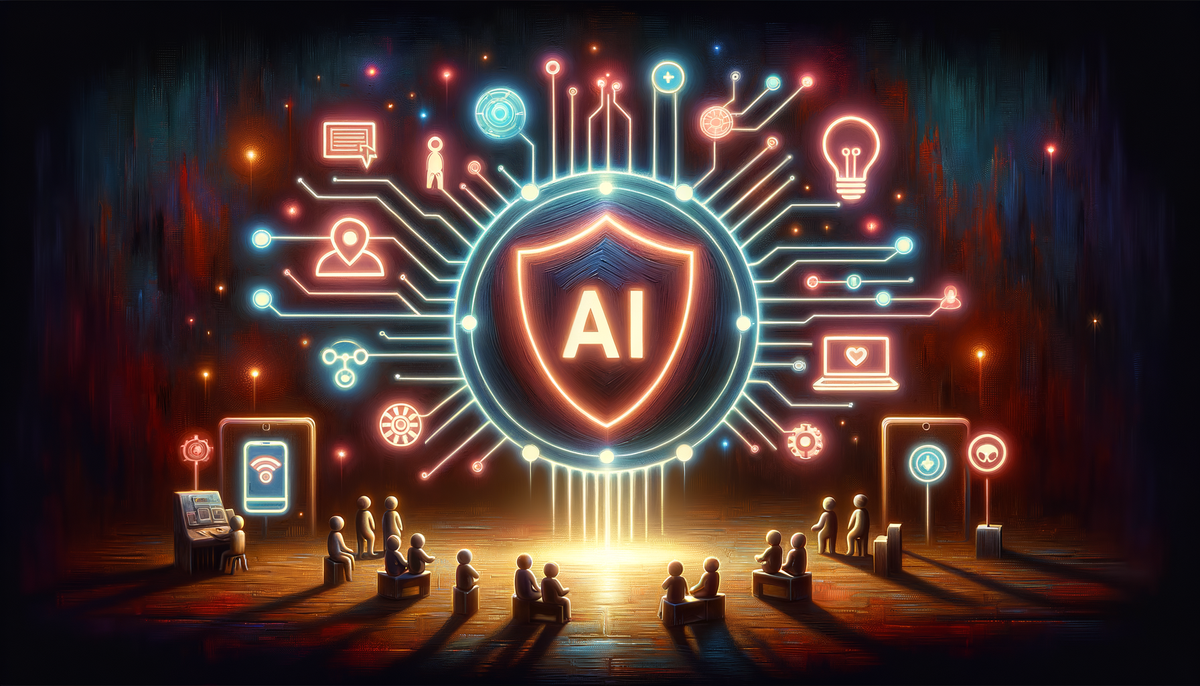AI's Rapid Evolution: Opportunities and Challenges

The convergence of artificial intelligence with everyday technology is poised to be the most transformative technology since electricity. As AI's evolution accelerates, it unfolds new potentials while raising significant ethical and socio-economic questions. From Samsung's AI-powered smartphones and revolutionary prompt engineering for multi-agent AI systems to AI's intricate role in the design world, the recent developments underscore a critical scrutiny of AI's impact. Furthermore, with experts warning about AI's environmental and economic repercussions, the necessity for strategic governance and responsible innovation becomes more pressingly evident.
The Multi-Faceted Evolution of AI: A Glimpse into the Present and Future
The Dawn of AI in Everyday Devices
Samsung has been a formidable force in the democratization of AI technologies through its Galaxy A56 and A-series phones. Equipped with AI-enhanced camera features like the "Best Face" and improved object removal tools, the Galaxy A56 not only enhances photography but expands the accessibility of advanced technology to more consumers. This echoes Samsung's strategy as outlined on AI.Biz: AI Rapid Evolution Opportunities and Challenges, demonstrating how innovation flows from premium to budget lines.
The deliberate integration of AI in budget-friendly models like the Galaxy A36 and A26, which promise up to six years of software updates, ensures long-term value for users. This strategy highlights Samsung's effort to balance affordability with technological advancement, cementing its competitive edge in the market as noted here.
Prompt Engineering: Navigating Multi-Agent AI Systems
In the sophisticated realm of AI, prompt engineering emerges as a critical skill in handling multi-agent AI systems, as discussed in Lance Eliot's article on Forbes. With the rise of generative AI and autonomous agents, efficient interaction through precise prompts becomes essential. Whether in the "driver's seat" or "passenger's seat," as Eliot metaphorically puts it, the ebb and flow of user control over AI systems mirror the complexities of navigating a new technological landscape.
"The tools and technologies we've developed are really the first few drops of water in the vast ocean of what AI can do." — Fei-Fei Li
AI's Dual Role in Creativity and Design
The artistic front sees AI leaving its mark in Brady Corbet's "The Brutalist," where AI aids in the creation of art that both captivates and controversially challenges human creativity. The ethical implications of AI collaboration in art, as reported on House Beautiful, stoke a vital discourse: Does AI complement or threaten creative authenticity?
Amidst the digital blend of human and machine, the film portrays a critical lens on the potential erasure of artistic identity amidst AI-driven creativity, reflective of a broader societal debate akin to the dual nature of AI innovations.
The Economic and Environmental Footprint of AI
The compelling urgency to address AI's socio-economic impact finds resonance among tech experts who sound alarms over AI's potential dangers and environmental toll. Highlighted in The Cool Down, experts point at AI's unsustainable consumption of energy and its role in labor displacement. Forward-looking estimates, such as those by Google's Demis Hassabis predicting AGI development, press for regulatory frameworks to guide the ethical use of AI technologies (source).
"AI will be the most transformative technology since electricity." — Eric Schmidt
Healthcare's Technological Renaissance
AI’s transformative potential extends deeply into healthcare, redefining patient care and cybersecurity strategies. The Digital Health Information Technology Summit hosted by Santa Fe College, reported by Alachua Chronicle, gathers experts to discuss essential AI leadership strategies and cybersecurity measures. As emphasized in AI.Biz, maintaining pace with AI innovation remains crucial for future-proofing healthcare solutions.
Conclusion
As we delve further into the future, AI shapes industries through innovative strides and challenges societal norms and ethical frameworks. Whether in making smartphones smarter, enhancing artistic expression, or ensuring cybersecurity, AI continues to enrich yet complicate our world. It is imperative to balance the array of benefits it offers with its profound impacts, remembering that at its core, AI is but a tool—a facilitator of human aspiration.




